Post
A catch
Save a catch to start your fishing logbook. You will be able to to share it with the community if yo want!
A fishing trip
Post an ad to go fishing with other fishermen
Save a catch to start your fishing logbook. You will be able to to share it with the community if yo want!
Post an ad to go fishing with other fishermen
Share a thought, a question with the community
My favorite cities
×Join our 461 fishermen and our 1 cofisherman in Kirton in Lincolnshire. The fishing forecast is currently 4.6. The most caught fishes here are the whiting fish, the red bream, seabass and the conger eel. Come try the most famous fishing techniques like the deep-sea fishing, float fishing (plug), tips on material to catch pollack with longline or pole feeder fishing.
Our fishing forecast of Kirton indicates the best time to go fishing in this city.
The Whiting fish
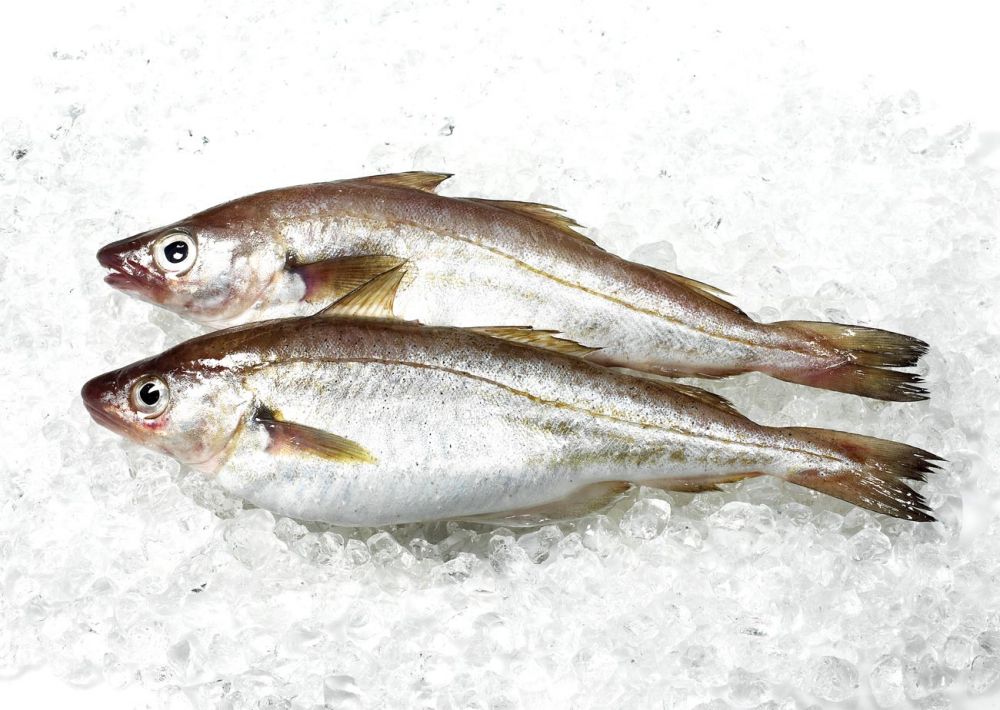
The Whiting fish belongs to the Gadidae family. Whiting grows quite quickly and measures about 30cm at the age of two years. At 5 years old, it measures about 50cm for a weight of about 1kg. Its maximum size reaches 70 cm. its lifespan is 22 years. It reproduces from January to April. A female can lay from 200,000 eggs to 1 million eggs. It is fished in winter. Its color is variable and can be yellowish brown, dark blue or green. Its sides are yellow-grey, white and its belly is silvery. A small dark spot is often present at the upper base of the pectoral fins.
The Whiting fish is a famous fish you can catch in Kirton.The Red Bream
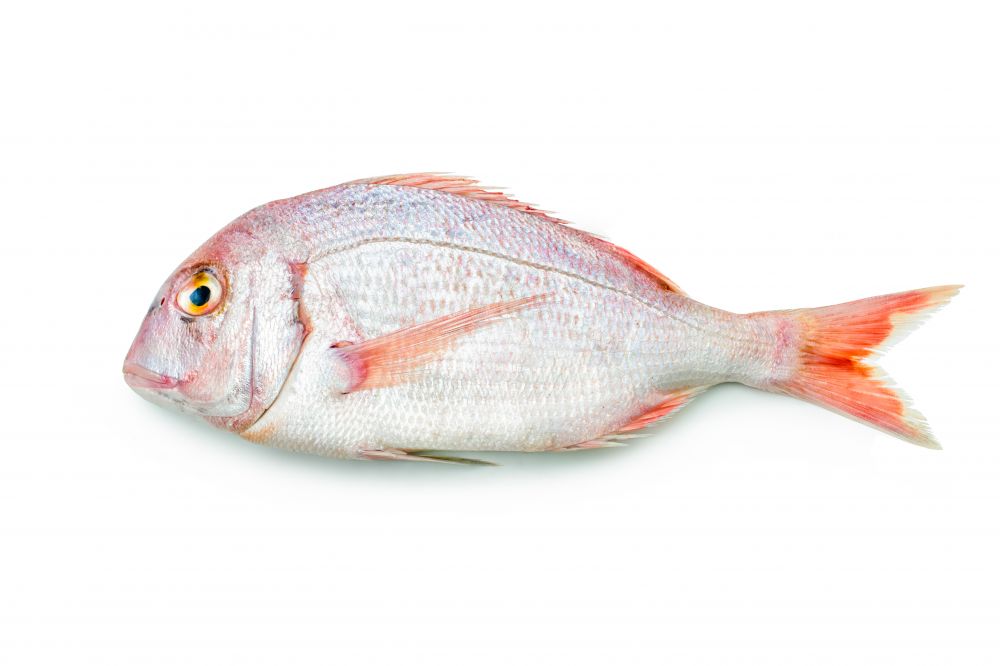
The Red Bream belongs to the Sparidae Family. The Red bream is a fish with a common length of 15 to 30 cm, the maximum known size being 60 cm. This fish can live for about twenty years. It breeds from May to August or March to July. Although it is fished all year round, it is between fall and winter that catches increase. The body is oval in shape, compressed laterally, as in most Sparidae. The head has an almost straight profile, a pointed snout, a fairly small mouth in a low and inclined position. The diameter of the eye is much smaller than the length of the muzzle. The inside of the mouth is greyish or whitish. The 2 jaws have sharp teeth in front (larger outer teeth, with small teeth) and 2 or 3 rows of molar-shaped teeth in the back. Like all Sparidae, it has only one dorsal fin. It begins at the plumbing of the pelvic bones and includes 12 spines and 10 to 11 soft rays. The anal fin has 3 spines and 8 to 9 soft rays, the length of its base is one-third that of the dorsal fin. The pectoral fins are high and very long, reaching almost vertically from the beginning of the anal fin. The caudal fin is forked. The body color is silvery pink with bluish reflections, the back and top of the head being darker. The upper part of the body is dotted with small blue spots. The upper outer edge of the lid is marked with a carmine red. The bases of the pectoral fins have a reddish spot and sometimes a spot is also observed at the base of the last rays of the dorsal fin.
The Red Bream is a famous fish you can catch in Kirton.Seabass
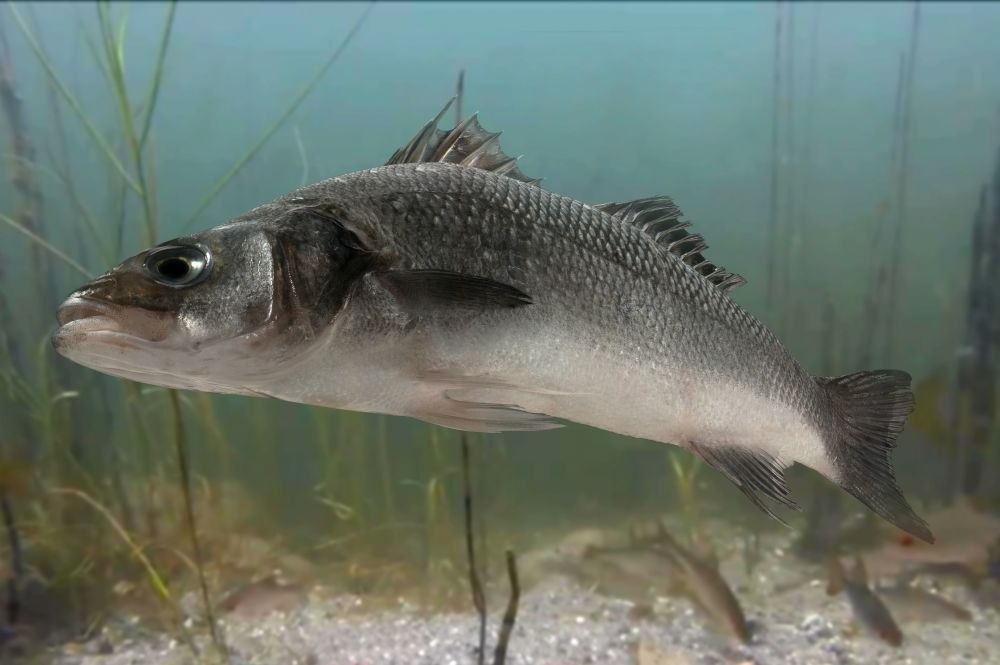
The Seabass belongs to the Moronidae family. Its size is usually between 70 and 80 cm (1.10 m maximum). The life expectancy of the seabass is variable: about thirty years in an aquarium, 24 years in Ireland, 6 years maximum most often in the Mediterranean. Breeding takes place between December and March or January to May depending on the location. The female lays 200,000 eggs at once. The body of this fish is elongated and slightly compressed. The two dorsal fins (the first thorny and the second soft) are well separated and have almost the same length and height. The anal fin is composed of 10 soft rays preceded by 3 thorny rays. The caudal peduncle is quite elongated and the caudal fin is indented, with an upper lobe often slightly longer than the lower lobe. The pectoral fins are short. The upper part of the head is quite straight, the upper jaw is a little shorter than the lower jaw. The operculum may have a more or less visible black spot in its posterior upper part. The scales are small in size but clearly visible. The lateral line is slightly arched in the front part of the body. The back is grey in color, the sides are lighter, with yellowish or silvery reflections. The pectoral and ventral fins are yellowish white; the others are darker. Mostly in young individuals, black spots may be present in the dorso-ventral region.
Seabass is a famous fish you can catch in Kirton.The Conger Eel
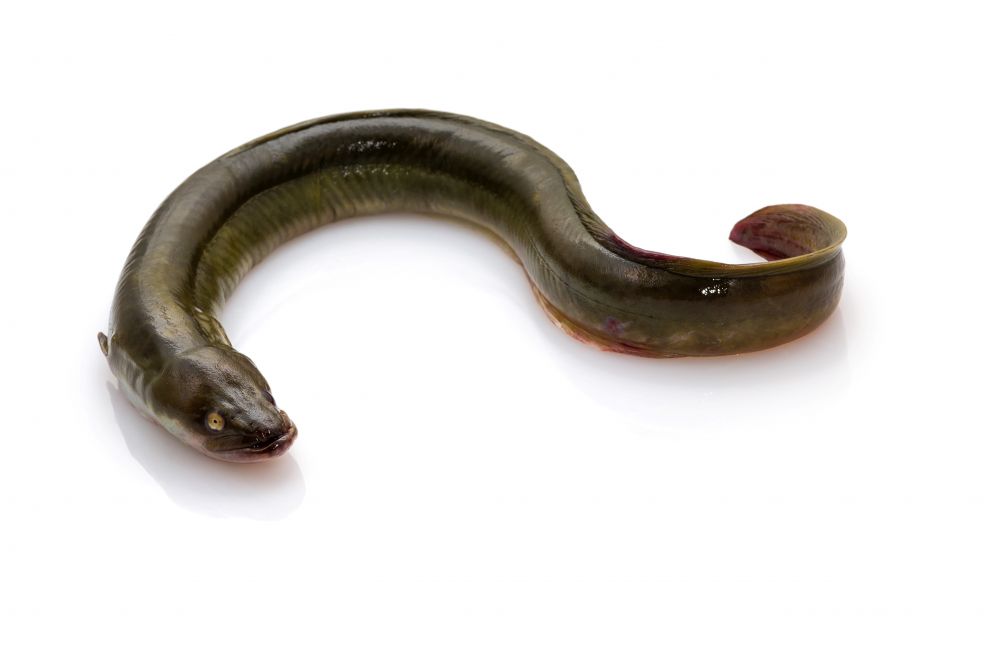
The Conger Eel belongs to the Anguillidae family. Its average size is 40 to 150 cm for an average weight of 4 kg. It has a life span of 50 years old. They breed from spring to summer. The best period to fish for Conger Eel is from April to September at night. Snake-shaped, oval body and the rear part is vertically compressed. The skin is relatively thick and covered with mucus that covers the scales. The lower jaw is longer than the upper and the nostrils are tubular. The dorsal and anal fins merge with the caudal fin and this all forms a single continuous fin that starts well behind the pectoral fins. There is no pelvic fin. Back brown-green with yellowish belly for yellow eel but back black with silver belly for silver eel. It turns black with a silver belly in silver eels for individuals ready to migrate to the Sargasso Sea.
The Conger Eel is a famous fish you can catch in Kirton.The Common Skate
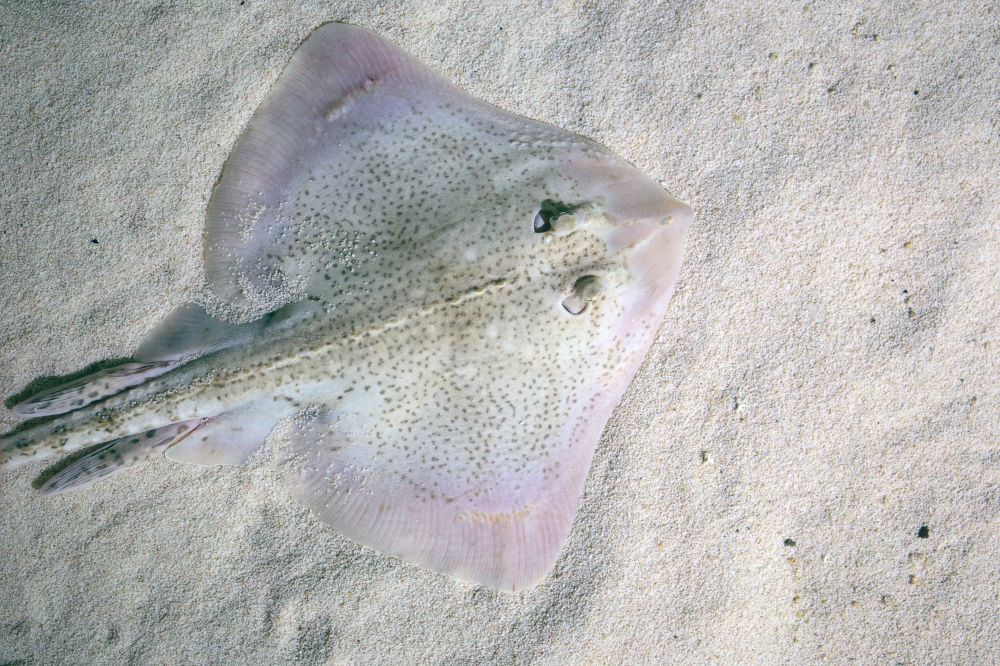
The Common Skate belongs to the Rajidae family. Its average size is 2.85 m for 110 kg of weight. It has a lifespan of 100 years. It breeds in spring to summer. The female can lay up to 40 eggs. They are considered as threatened species by the IUCN or International Union for Conservation of Nature. The Common Skate has a pointed snout and rhombic shape, with a row of spines along the tail. The upper surface is colored olive-grey to brown with dark or white spot, and the bottom is lighter blue-grey.
The Common Skate is a famous fish you can catch in Kirton.Our fishing forecast of Kirton indicates the best time to go fishing in this city.
Our fishing forecast of Kirton indicates the best time to go fishing in this city.
Our fishing forecast of Kirton indicates the best time to go fishing in this city.
